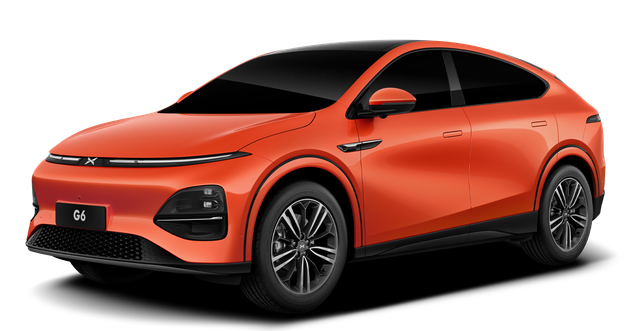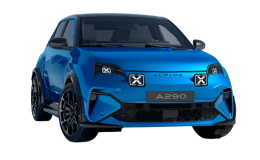Understanding the market for electric car fleets in the B2B sector
Current state of the electric car fleet market in the B2B sector

The market for electric car fleets in the B2B sector is experiencing significant growth, driven by a number of favorable factors. French companies are increasingly adopting electric vehicles for their fleets, motivated by long-term economic benefits, government incentives and sustainability objectives.
This transition is particularly noticeable in the transport, logistics and service sectors. Carmakers are responding to this growing demand by offering a wider range of electric models tailored to business needs, with extended range and company-specific features. What's more, the ongoing improvement of recharging infrastructures and advances in battery technology are helping to make electric fleets even more attractive to businesses.
Electric car fleets: what are the benefits for companies?
Lower operating costs
Electric vehicles (EVs) offer significant fuel savings thanks to the cost of electricity, which is generally lower than that of petrol or diesel, making them more economical to use than internal combustion vehicles.
What's more, EVs benefit from simplified maintenance, as they have fewer moving parts and do not require oil lubrication, which significantly reduces the costs associated with maintenance and repairs compared with combustion-powered vehicles. These factors combine to make electric vehicles not only greener by reducing direct emissions, but also more economically advantageous for owners over the long term.
Tax and financial incentives
Companies can benefit from various financial and tax incentives for adopting electric vehicles (EVs). In France, for example, the government offers an ecological bonus of up to 4,000 euros per electric vehicle purchased which represents a significant saving on the initial acquisition cost.
For example, electric vehicles can qualify for additional tax breaks, such as reductions on company vehicle tax (TVS), which are designed to encourage the use of more environmentally-friendly vehicles in company fleets.
What's more, companies can benefit from specific tax deductions for green investments, helping to make EVs not only ecologically advantageous, but also financially attractive in the long term by reducing operating costs and enhancing their sustainability on the market.
Access to low-emission zones (LEZ)
Electric vehicles (EVs) help companies comply with increasingly stringent regulations on CO2 emissions and access to Low Emission Zones (LEZs), enabling them to avoid fines and traffic restrictions. By adopting EVs, companies can not only reduce their carbon footprint, but also effectively comply with current environmental standards, which is essential for maintaining long-term competitiveness and regulatory compliance.
Enhanced brand image and corporate social responsibility (CSR)
By integrating electric vehicle fleetsfleets, companies can demonstrate a concrete commitment to the environment, reinforcing their brand image and positioning in terms of social and environmental responsibility (SER).
This initiative can also play an important role in talent attraction, attracting environmentally aware employees and strengthening the company's reputation as a responsible and visionary employer. In this way, the adoption of electric vehicles goes beyond economic and regulatory benefits, also offering important strategic benefits in terms of reputation and talent attraction.
Technologies and innovations
Electric vehicles (EVs) are equipped with advanced technologies such as telematics, predictive maintenance and driving data analysis, enabling optimized fleet management. These innovations help reduce operating costs by optimizing maintenance planning and preventing breakdowns, while improving the overall efficiency of company operations.
By integrating these features, EVs offer not only environmental and economic benefits, but also improved fleet management that meets the growing need for sustainability and performance in the automotive sector.
Challenges associated with the transition to electric car fleets in the B2B sector
The transition to electric car fleets in the B2B sector presents several major challenges.
Firstly, the high initial cost of electric vehicles poses a significant financial barrier, although long-term savings on operating costs can be substantial.Recharging infrastructure is also a key challenge, requiring significant investment to meet the recharging needs of fleets spread across different sites.
Vehicle range management and longer recharging times compared to gasoline-powered vehicles impact operational planning and vehicle availability. In addition, driver training to optimize energy efficiency and battery durability, as well as regulatory and environmental concerns related to battery recycling, add further complexities to this transition.
Despite these challenges, a strategic approach including partnerships with suppliers, adaptation of fleet management software and use of government incentives can facilitate successful integration of electric vehicles into B2B operations, maximizing long-term benefits for businesses.
Simplify the installation of charging stations in your company with Beev
Choosing the right electric vehicles for your business
What are the different types of electric vehicles on the market?
There are several types of electric vehicles available on the market, each with its own characteristics:
1. Battery electric vehicles (BEV)
These vehicles run solely on electricity, stored in a rechargeable battery. They emit no greenhouse gases when in use, and generally offer a range of between 150 and 400 km.
2. Plug-in hybrid vehicles (PHEV)
Equipped with both an internal combustion engine and an electric motor, these vehicles can be recharged from an electrical socket. They can cover several dozen kilometers in 100% electric mode before the internal combustion engine takes over.
3. Hybrid vehicles (HEV)
These vehicles combine an internal combustion engine and an electric motor, but cannot be recharged from a socket. The battery is recharged during braking and deceleration. They consume around 30% less fuel than conventional vehicles.
4. Light hybrid vehicles (LHV)
Similar to conventional hybrids, but with a smaller battery. They cannot operate solely in electric mode, even when stationary.
5. Extended-range electric vehicles (ERV)
These vehicles are powered by an electric motor, but have a small internal combustion engine that acts as a generator to recharge the battery when needed. This increases the vehicle's range.
6. Fuel cell electric vehicles (FCEV)
Also known as hydrogen-powered vehicles, they use a fuel cell to generate electricity from hydrogen, releasing only water as a by-product.
Each type of electric vehicle has its advantages and disadvantages in terms of range, emissions, cost and practicality. The choice will depend on the user's specific needs, driving habits and personal preferences.
Selection criteria for electric vehicles adapted to your needs
To choose an electric vehicle that perfectly meets your needs, there are several key criteria to consider:
- First of all, autonomy is important, determining the distance you can cover without recharging, adapted to your daily and occasional use.
- Next, examine the charging options available, assessing the maximum power accepted in alternating current (AC ) and direct current (DC) for rapid recharging.
- Also consider the type of vehicle that will best suit your specific needs, whether it's a city car, a sedan or an SUV.
- The total cost of ownership, including potential savings on energy and maintenance, is another important point to compare, as are available financial aids such as the ecological bonus.
The vehicle's performance, including engine power, acceleration and top speed, must match your expectations. On-board equipment and technologies such as driver assistance and infotainment also deserve careful comparison. In addition, make sure that the vehicle's driving comfort and habitability meet your requirements.
The availability of a charging network compatible with your usual routes, as well as the possibility of recharging at home, are practical aspects not to be overlooked. Finally, if environmental impact is a key criterion for you, compare the carbon footprint of the different models available. Take the time to evaluate these criteria so you can choose the electric vehicle that best suits your lifestyle and specific needs.
Read more: What's the ideal professional electric vehicle?
Develop an electric car fleet transition strategy for your company
Electric cars for fleets: a worthwhile investment?
Electric cars for corporate fleets generally represent a profitable investment over the medium to long term. Although the initial purchase cost is often higher than that of combustion-powered vehicles, savings on fuel, servicing and maintenance more than offset this investment over time.
In addition, government incentives, tax breaks and tax benefits and a positive image in terms of environmental responsibility all contribute to the profitability of this investment. Reduced operating costs, thanks in particular to stable electricity prices that are generally lower than those for fossil fuels, mean a significant return on investment. However, profitability can vary according to the specific features of each company, such as mileage, available recharging infrastructure and local environmental policies.
Conclusion
The transition to electric vehicles in the B2B sector represents a major strategic opportunity for companies, in terms of reducing operational costs, complying with environmental regulations, and improving brand image. Despite the challenges of initial cost and charging infrastructure, the economic, fiscal and environmental benefits are substantial. Technological advances and government incentives further enhance the appeal of this transition.
Beev, the electric mobility expert, can support you in this process, helping you to choose the vehicles best suited to your needs and providing customized solutions for effectively integrating electric vehicles into your fleet. With Beev, maximize the benefits of electrification and ensure the success of your transition to sustainable, innovative mobility.
































